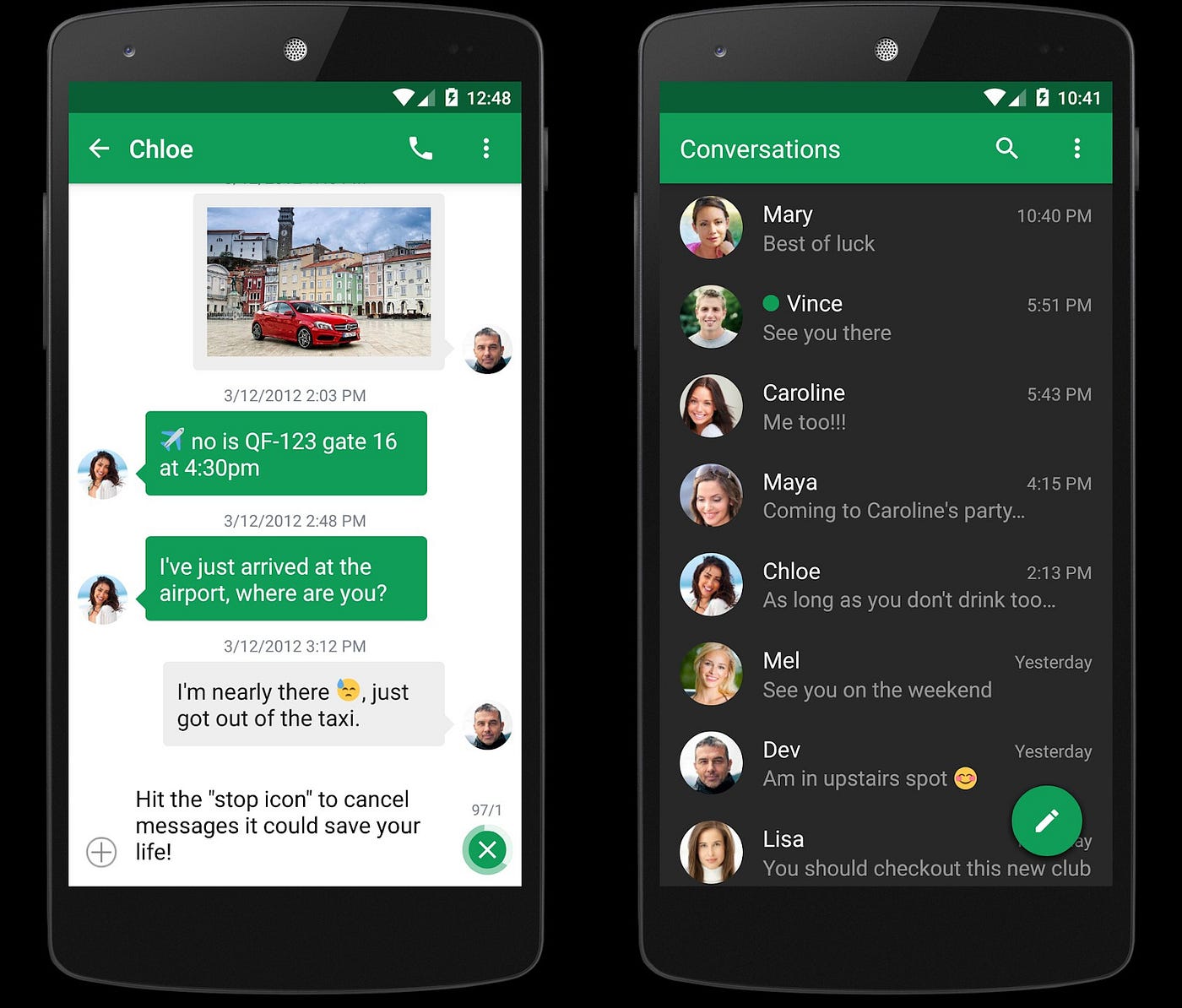
Introduction to Messaging Apps
Messaging apps have transformed communication. They offer features like text messaging, voice and video calls, file sharing, and group chats. The choice often depends on personal preference and specific needs. Some users may prioritize end-to-end encryption for security, while others might seek advanced multimedia capabilities.
Top Android Messaging Apps for iPhone
Sunbird
Sunbird is a standout Android messaging app for iPhone users. It integrates seamlessly with iMessage for Android users, allowing messages to be sent across platforms without hassle. Key features include:
- Cross-Platform Compatibility: Send messages between Android and iOS.
- Group Chats: Communicate with multiple people simultaneously.
- File Sharing: Share images, videos, documents, and more.
- End-to-End Encryption: Secure communication.
- Customization: Options for notifications and chat backgrounds.
BirdsBeep
BirdsBeep is another popular choice, offering a range of features that make it a favorite among users:
- Simple Interface: Intuitive and easy to use.
- Cross-Platform Messaging: Send messages across different platforms.
- Group Chats: Ideal for team communication.
- File Sharing: Share various types of files.
- Customization: Options for notifications and chat backgrounds.
Comparison of Messaging Apps
Sunbird vs BirdsBeep
Both apps offer cross-platform compatibility, a significant advantage for users switching between devices or platforms. Sunbird's unique integration with iMessage makes it easier to communicate seamlessly across platforms.
Features and Customization
Sunbird provides advanced features like end-to-end encryption and customization options for notifications and chat backgrounds. BirdsBeep offers a simpler interface but still includes essential features like group chats and file sharing.
User Experience
User experience is crucial when choosing a messaging app. Sunbird’s integration with iMessage benefits users familiar with Apple’s ecosystem. BirdsBeep’s simple interface makes navigation easy, especially for those new to messaging apps.
How to Use Android Messaging Apps on iPhone
Using an Android messaging app on an iPhone is straightforward. Follow these steps:
- Download the App: Get the desired Android messaging app from the App Store or Google Play Store.
- Sign Up/Log In: Use your credentials to sign up or log in.
- Set Up Cross-Platform Compatibility: Follow the app's instructions for setting up cross-platform compatibility.
- Start Messaging: Begin sending messages across different platforms.
Benefits of Using Android Messaging Apps on iPhone
Using an Android messaging app on an iPhone offers several advantages:
- Cross-Platform Compatibility: Send messages across different platforms.
- Feature Variety: Often offer a wider range of features compared to native iOS apps.
- Customization: Provide customization options not available in native iOS apps.
- Cost-Effective: Some are free or offer free versions with minimal ads, making them a cost-effective option.
Additional Tips for Using Android Messaging Apps on iPhone
Data Transfer
Transfer data from an Android device to an iPhone using Apple's Move to iOS app. This app helps move contacts, message history, photos, videos, web bookmarks, mail accounts, and calendars. Some app data and settings might not transfer seamlessly.
App Quality
iOS apps are often optimized better due to the limited number of devices they need to support. Developers usually release updates for iOS first. Android apps can vary in quality because they need to work on a wide range of devices with different specifications.
Battery Life
Battery life varies widely among both iPhones and Android phones. Generally, high-end Android phones have larger batteries, but iOS is known for its efficient power management. It really depends on the specific model and how you use your phone.
By considering these factors and tips, users can seamlessly integrate their preferred Android messaging app into their iPhone experience, enhancing their communication capabilities and overall user experience.
